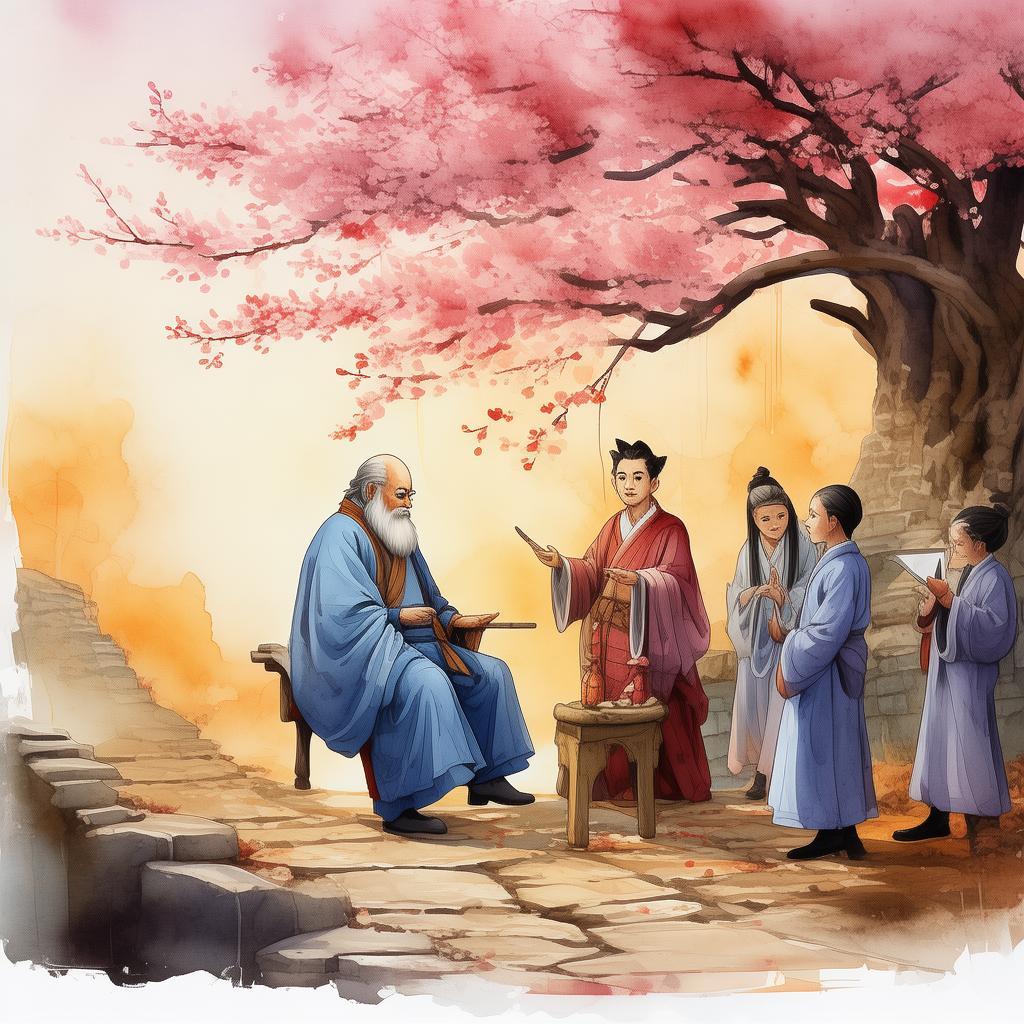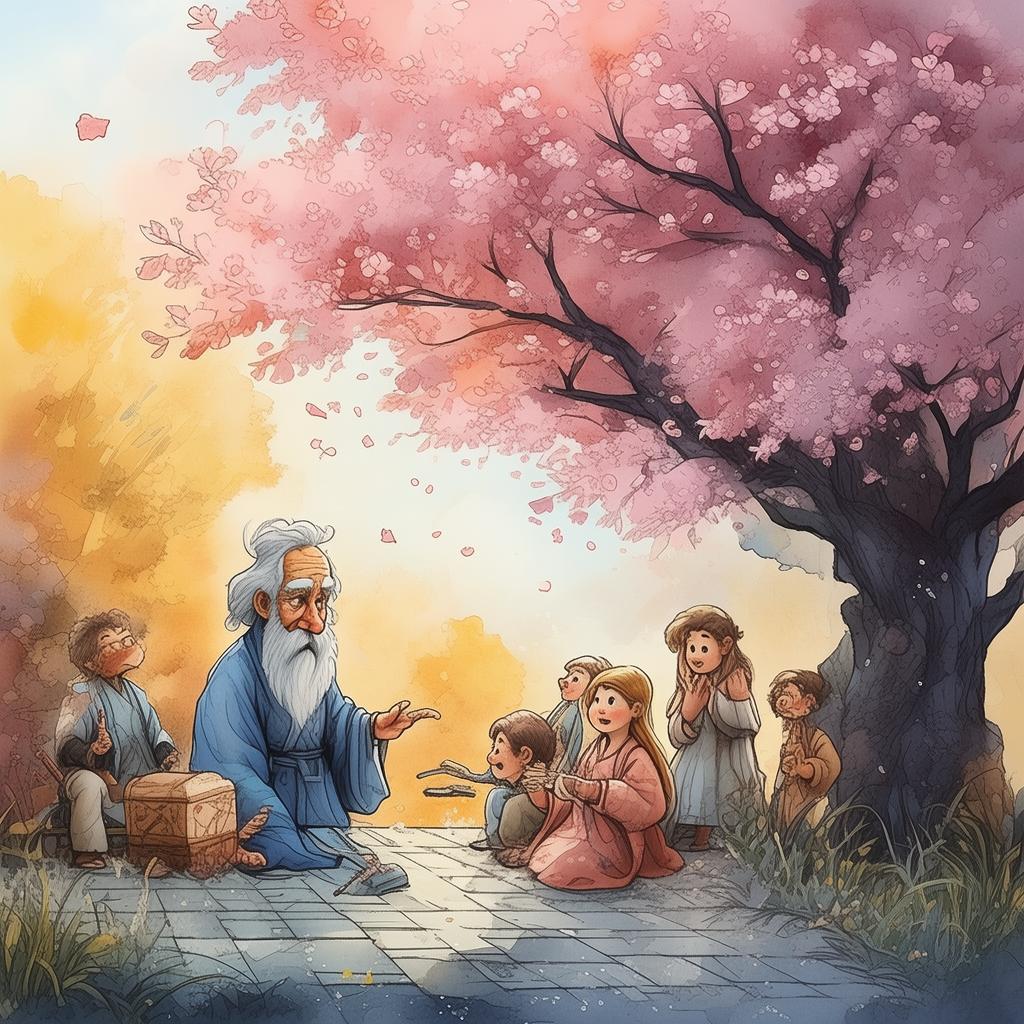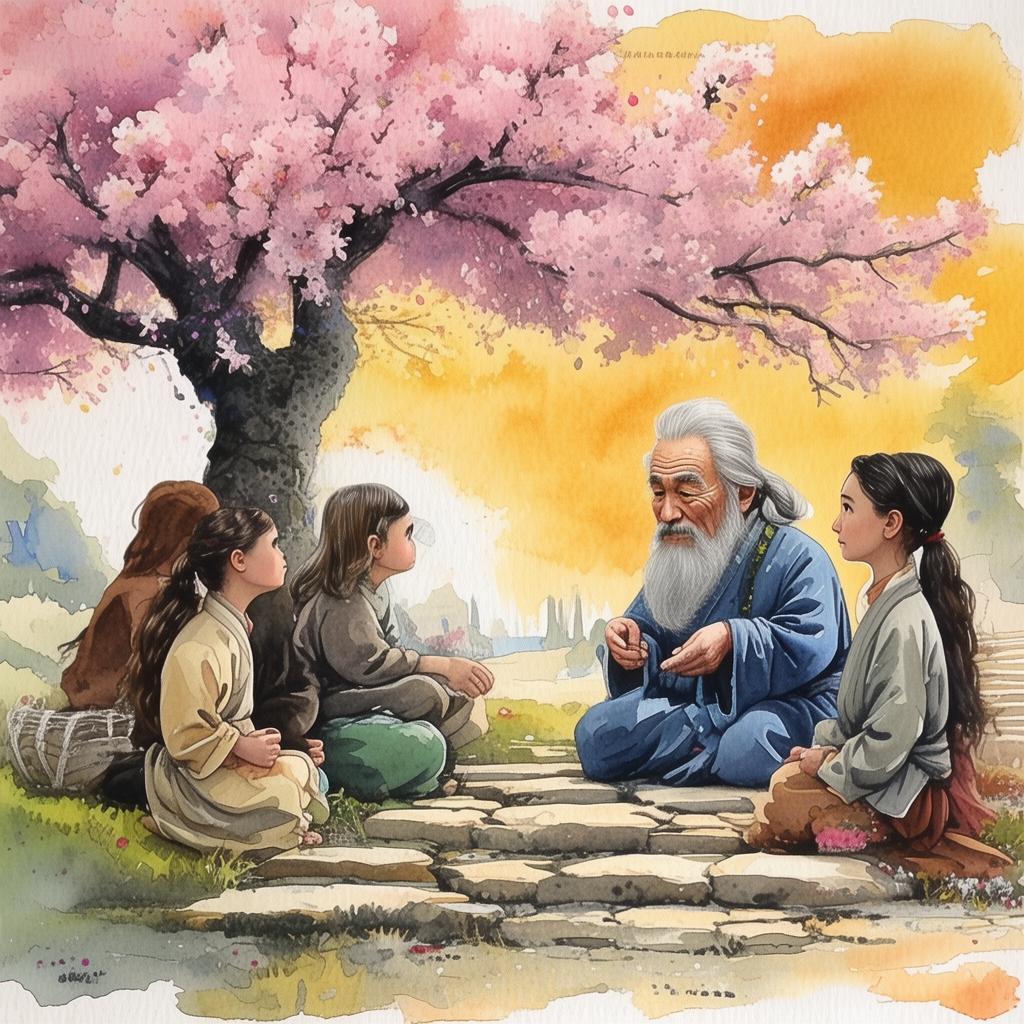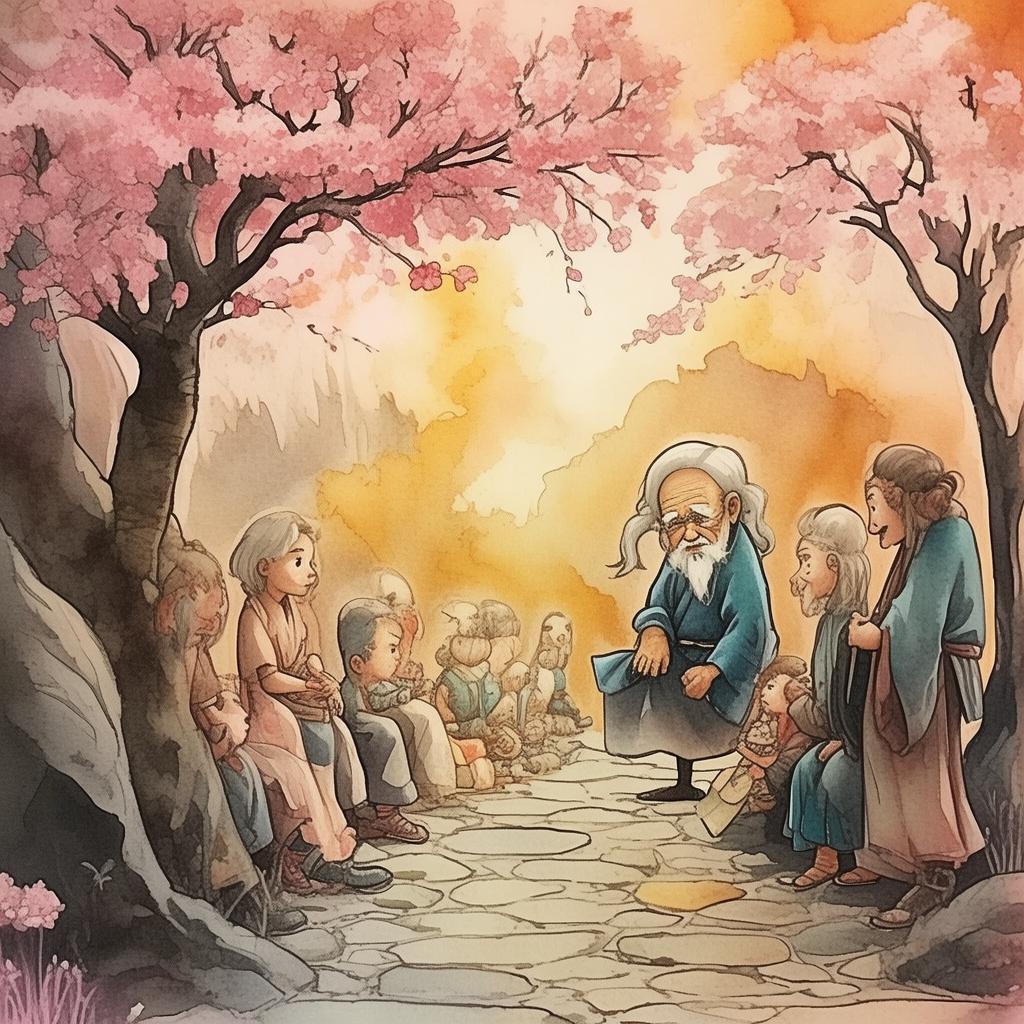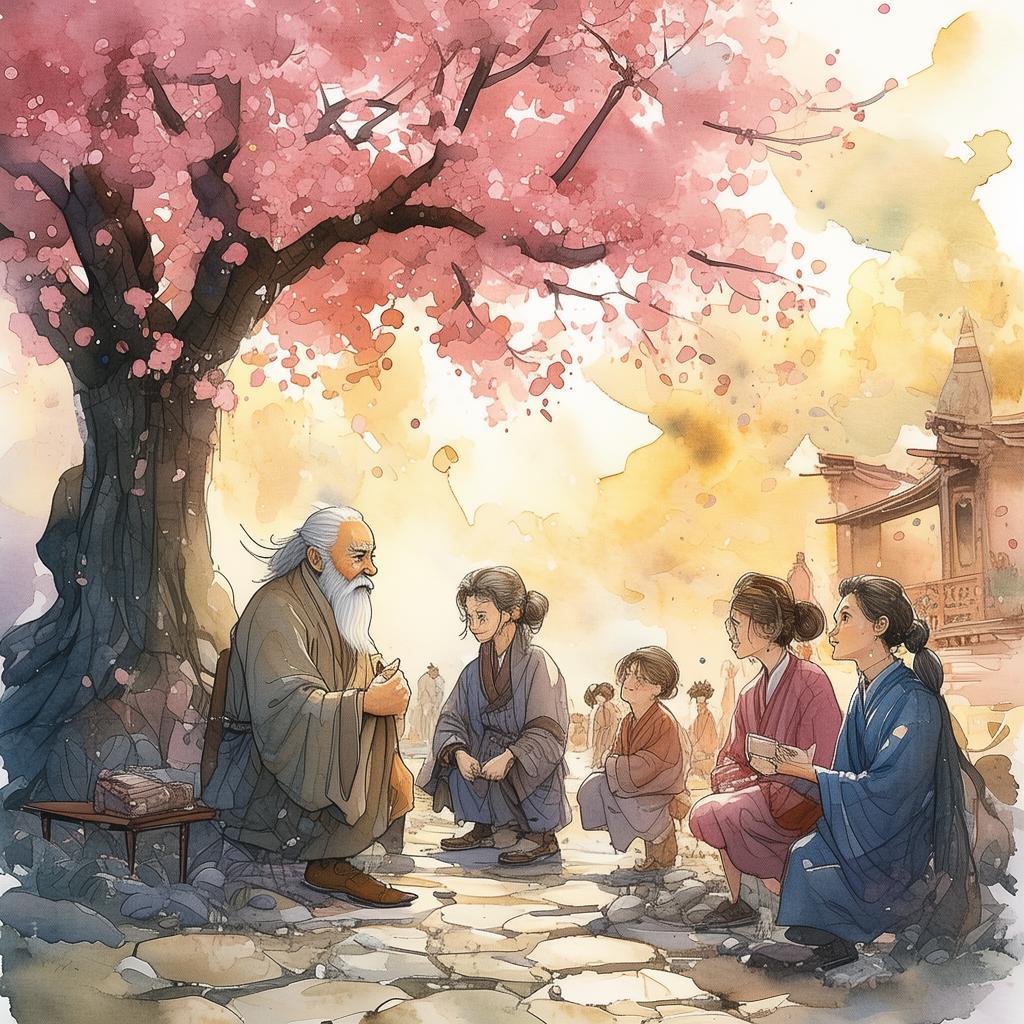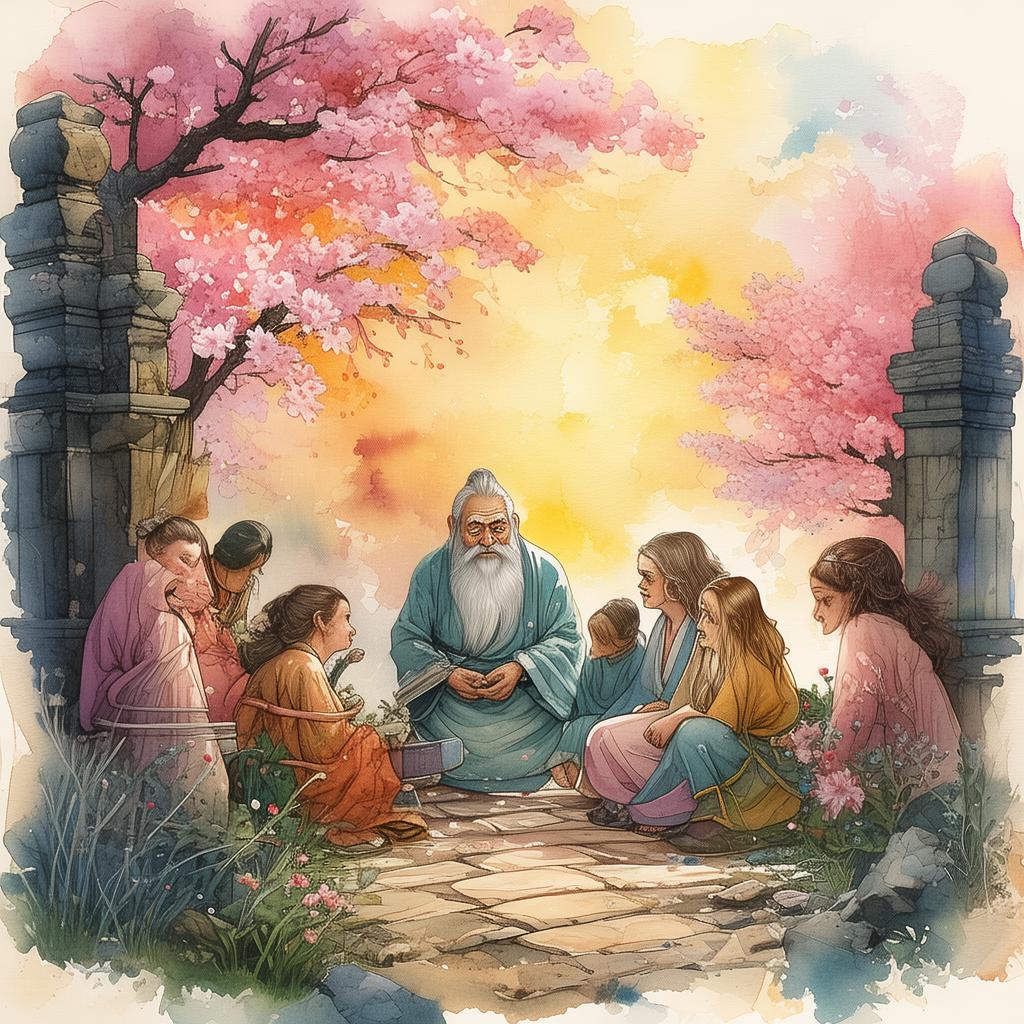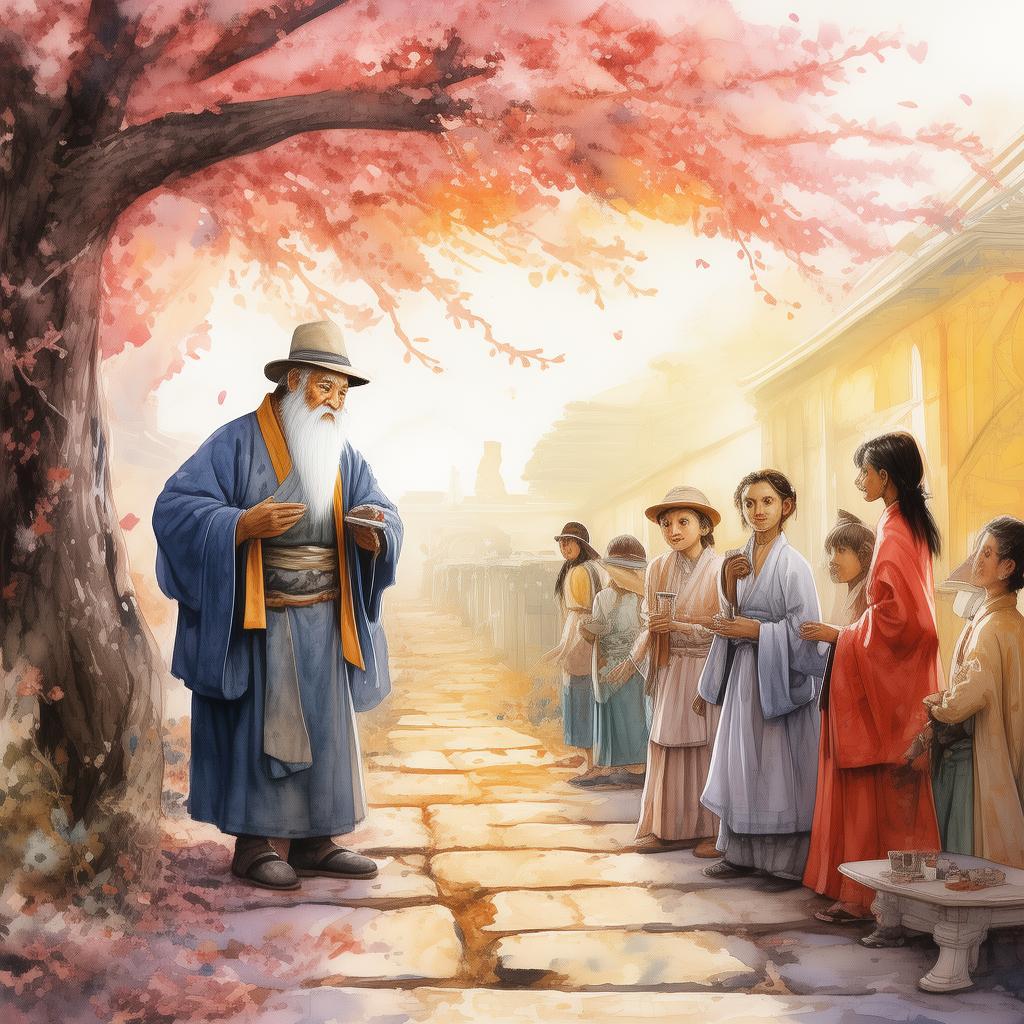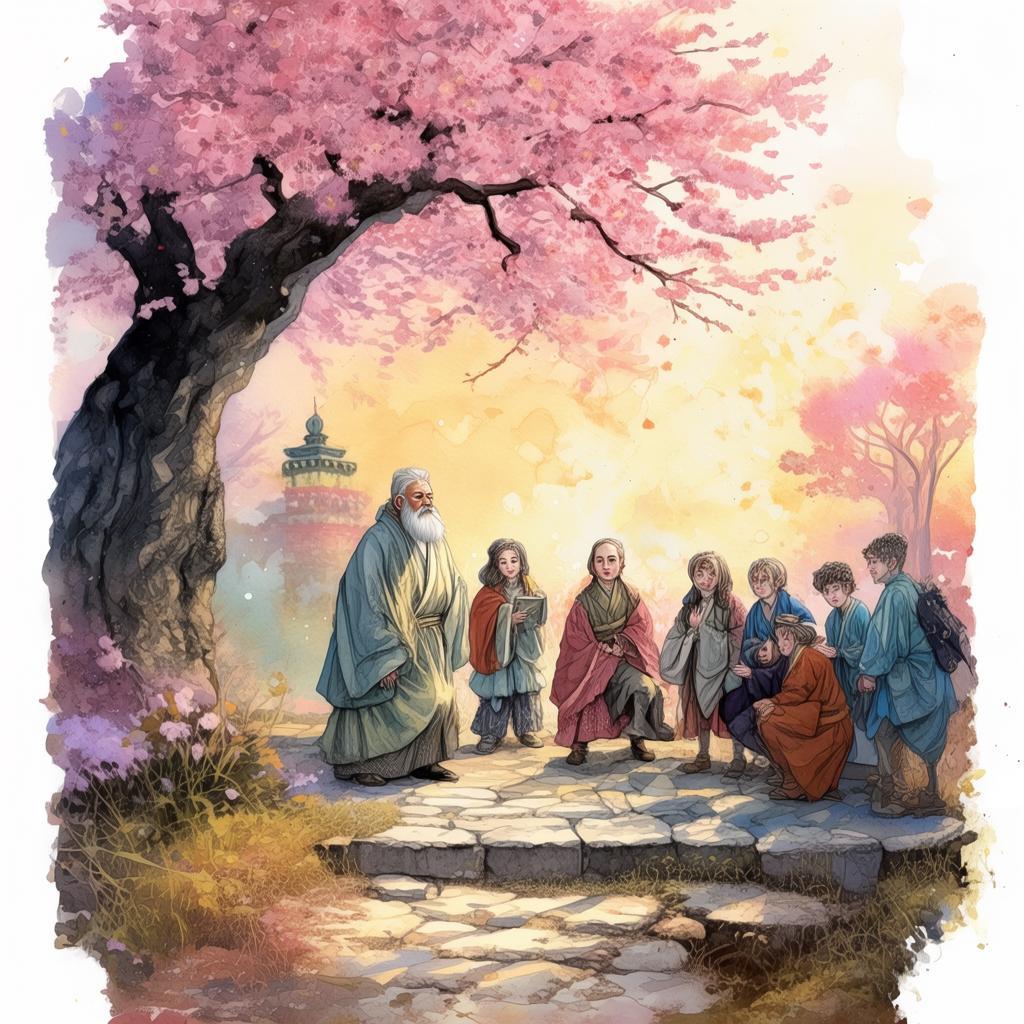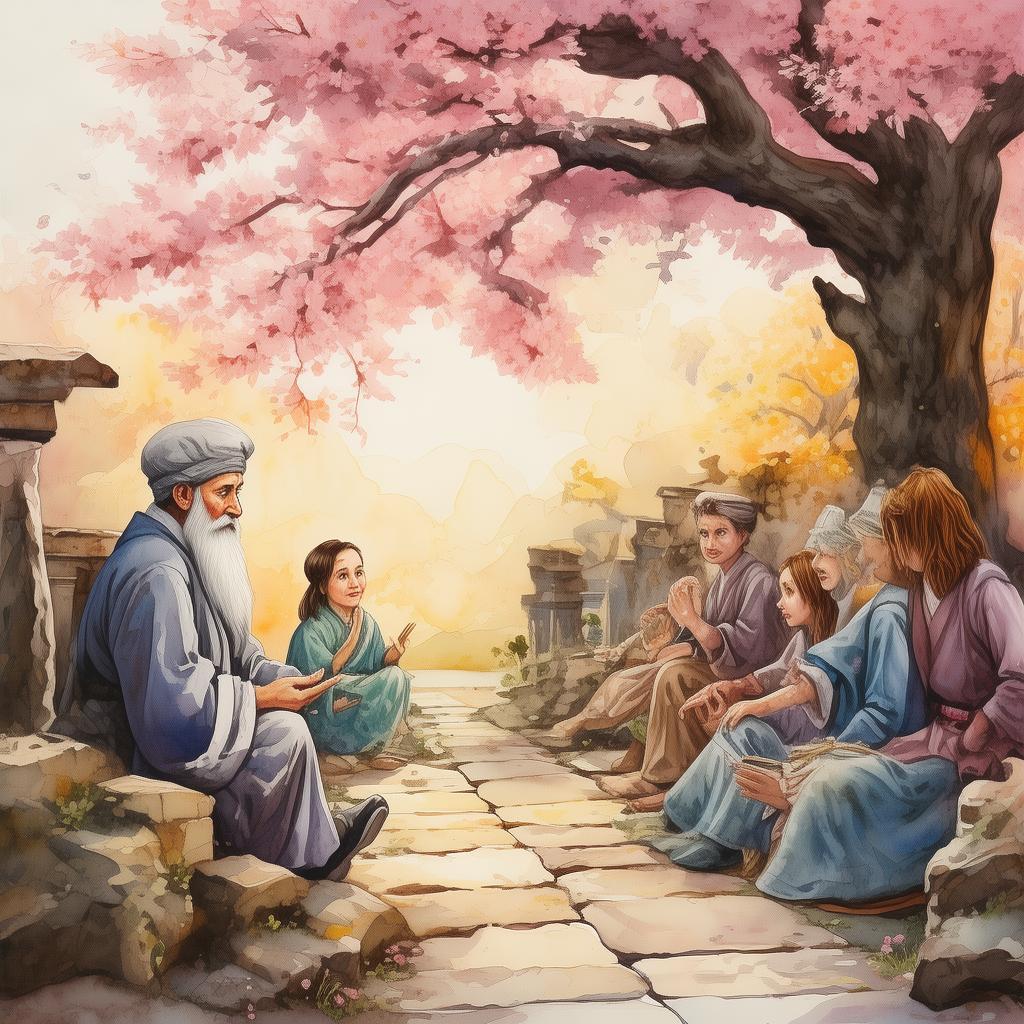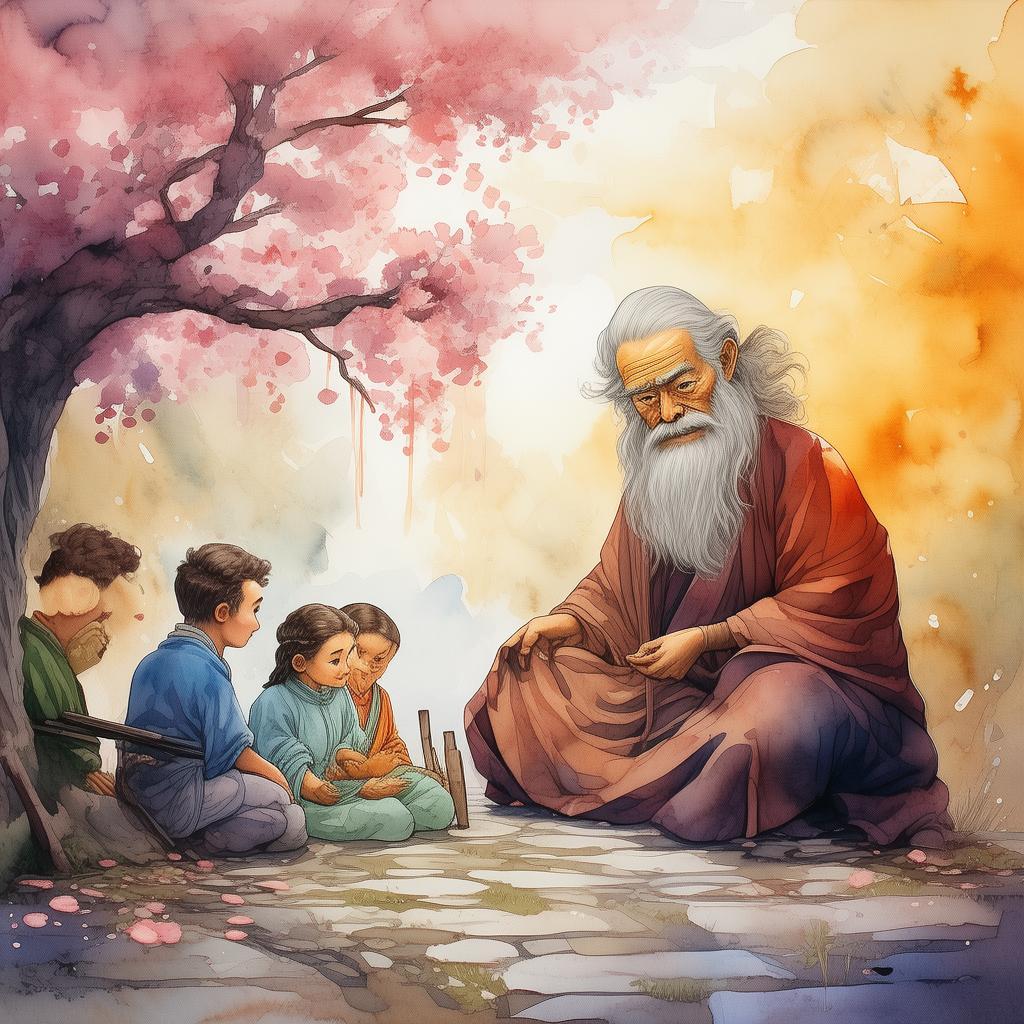The Labyrinth of the Mind: A Dream That Changed Everything
In the serene town of Lingxi, nestled among towering mountains and whispering rivers, there lived a young scholar named Ming. His intellect was unparalleled, but his spirit yearned for something more profound than the mere accumulation of knowledge. He sought enlightenment, the kind that transcends the mundane and reaches the depths of the human mind.
One fateful evening, as the moon cast its silver glow upon the tranquil waters of the Ling River, Ming encountered an ancient scroll in the local library. It was titled "The Scholar's Symphony: A Journey Through the Veil of Dreams." Intrigued by the scroll's cryptic promise of enlightenment, Ming spent the night poring over its words.
The scroll spoke of a mystical labyrinth, a place where dreams and reality intertwine, and where one could find the key to true understanding. It was said that those who dared to enter the labyrinth would be tested by trials that mirrored their deepest fears and desires. Ming knew that this was his destiny. He had to find the courage to cross the threshold of the labyrinth and face the veils of his own mind.
With a heart full of determination, Ming ventured into the labyrinth that night. The path was shrouded in darkness, and the air was thick with an eerie silence. As he stepped deeper into the labyrinth, the walls seemed to close in around him, and his breath quickened with anticipation.
The first trial came in the form of a dream where he was standing on the edge of a cliff. Below, a vast chasm yawned, and he was confronted with a choice: to leap into the abyss or turn back. Ming, feeling the weight of his own fears, chose to leap, but instead of falling, he found himself floating. He realized that the leap was symbolic, a representation of his readiness to let go of his attachments to the material world and embrace the spiritual realm.
The next trial was a maze of mirrors, each reflecting different versions of himself—his successes, his failures, his joys, and his sorrows. Ming became lost in the labyrinth of his own thoughts, unsure of which path to take. Yet, he realized that the mirrors were a metaphor for the internal conflicts that plagued him. He needed to find the courage to confront these inner battles and understand that true enlightenment lay in embracing all aspects of himself.
In the third trial, Ming encountered a wise old man who offered him a choice: to follow the path of wisdom or the path of power. Ming, realizing that power without wisdom is destructive, chose the path of wisdom. The old man nodded approvingly and presented him with a scroll that contained the ancient wisdom of the labyrinth.
The labyrinth was not just a physical space; it was a journey through the mind. Ming's journey was a reflection of his own growth and self-discovery. He learned that enlightenment is not about escaping the world, but about understanding and accepting it. He learned that the mind is a labyrinth, and the path to true understanding lies within its depths.
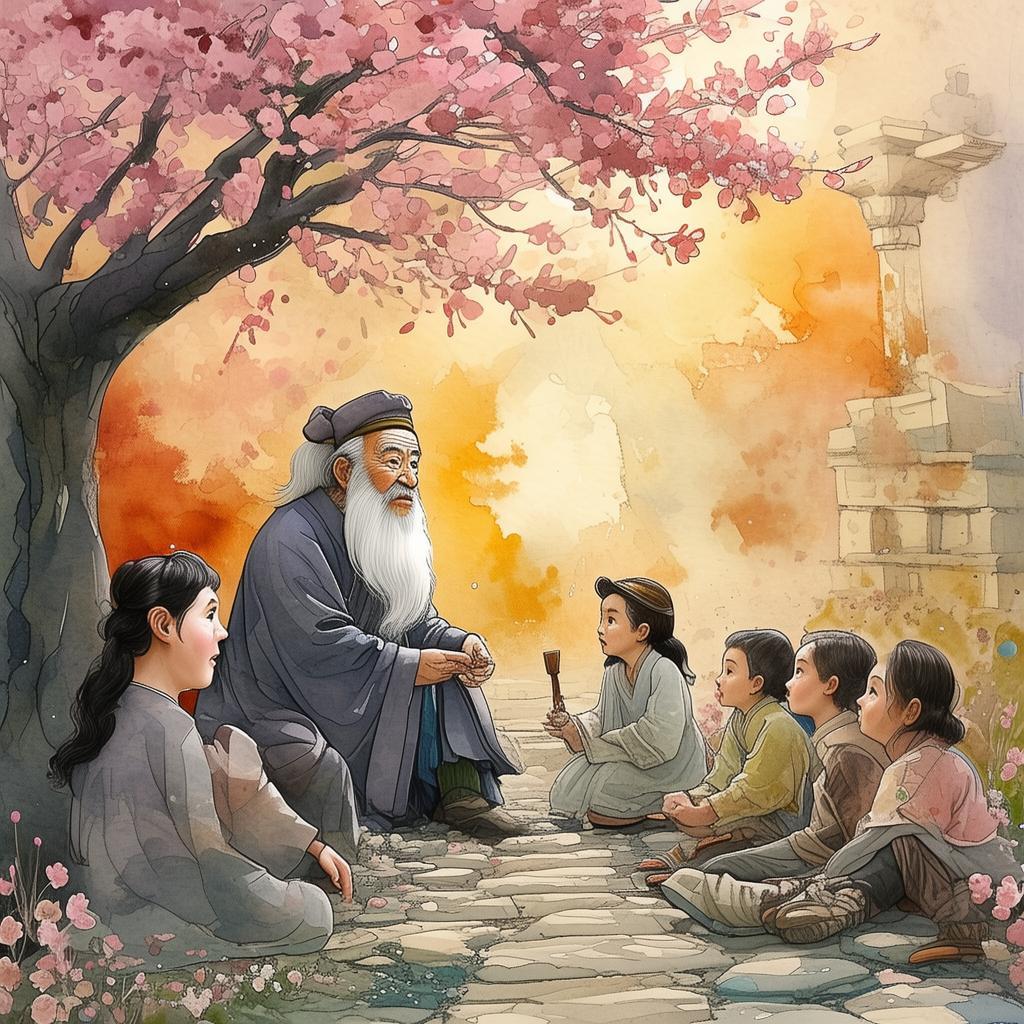
As the last trial approached, Ming found himself standing in a room filled with books. He realized that all the knowledge he had gathered over the years was like a veil, hiding the truth of his existence. With the wisdom he had gained, he closed the scroll and stepped back into the world.
When he awoke the next morning, he felt a profound sense of clarity and peace. He understood that the labyrinth was not a physical place but a metaphor for the journey of self-discovery. Ming had faced his deepest fears and desires, and in doing so, he had uncovered the true nature of reality.
The Scholar's Symphony had changed him forever. He realized that enlightenment is not a destination but a continuous journey. With this newfound understanding, Ming returned to his studies, not with a desire to accumulate knowledge, but to share the wisdom he had discovered in the labyrinth of his own mind.
And so, the story of Ming and his journey through the labyrinth of dreams became a legend, a tale of one man's quest for enlightenment and the transformative power of self-discovery.
✨ Original Statement ✨
All articles published on this website (including but not limited to text, images, videos, and other content) are original or authorized for reposting and are protected by relevant laws. Without the explicit written permission of this website, no individual or organization may copy, modify, repost, or use the content for commercial purposes.
If you need to quote or cooperate, please contact this site for authorization. We reserve the right to pursue legal responsibility for any unauthorized use.
Hereby declared.
